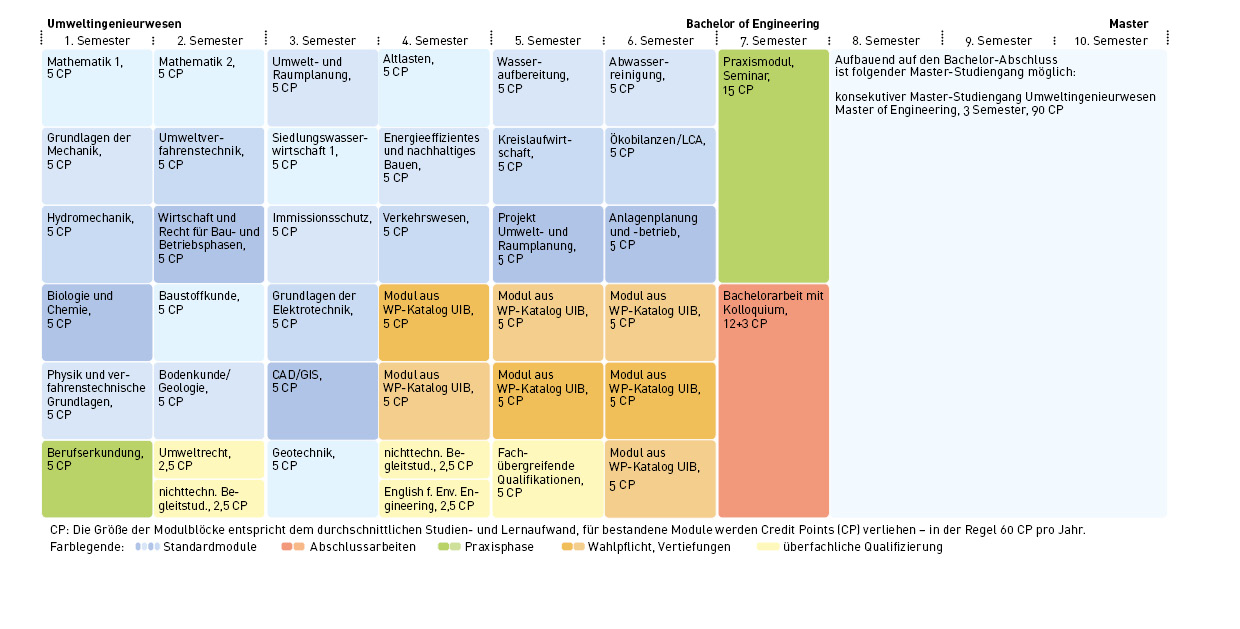
Environmental Engineering (Bachelor of Engineering)
| Semester | 7 Semester |
| Darmstadt | |
| Winter semester | |
| GER | |
| Without admission restriction. | |
| yes |
Content
As our resources become scarcer, efficient and environmentally sound management is becoming increasingly important. But how can waste be returned to the material cycle? How is the supply of clean drinking water guaranteed? How can inner-city brownfields be cleared of contaminated sites and made accessible again for general use? Answers to questions like these are provided by the course of studies Environmental Engineering with the degree Bachelor of Engineering (B.Eng.). In seven semesters, it conveys a broad basic knowledge from the fields of natural and engineering sciences. The course contents focus in particular on urban and sustainable settlement planning, with emphasis on the subject areas of soil, water, air and energy. More detailed information on the study programme can be found on the website of the Faculty of Civial and Environmental Engineering.
Perspectives
Environmental engineers work in areas such as consulting, planning, plant construction, administration and management. They work for engineering and consulting firms, public institutions such as environmental agencies or water authorities, as well as for waterworks, sewage treatment plants and waste disposal companies. Employment in industry is also possible. Graduates of the study programme are also able to carry out development work or work for environmental and water associations.
Based on the Bachelor's degree, the following Master's programme is possible:
Structure
The necessary qualifications and competences for the above-mentioned fields of work are taught in the modules of the Bachelor's programme in Environmental Engineering, for example in courses, project and experimental laboratory work. In the first semesters, scientific and engineering basics are taught, such as biology and hydromechanics. The following semesters serve to deepen students' knowledge in the fields of soil, water, air and renewable energies. A practical phase followed by a final module facilitates the start of the profession. A detailed presentation of the course contents can be found in the module manual (German).
Dual study programme
Environmental Engineering (B.Eng.) can also be can also be pursued as a dual study programme. Further information can be found on the website of the faculty.
Access
The study programme Environmental Engineering (B.Eng.) is not admission restricted (no NC). Among other things, these school-leaving qualifications are considered to be the admission requirements:
- General matriculation standard (allgemeine Hochschulreife)
- Subject-related entrance qualification (fachgebundene Hochschulreife)
- Advanced entrance qualification for universities of applied sciences (Fachhochschulreife).
A detailed description of the admission requirements can be found in the Special Provisions of the Examination Regulations (German).
The application deadline has been extended. Please inform yourself under application deadlines.
Contact
Birte Frommer
+49.6151.533-67754
studienberatung.fbb@h-da.de
1
